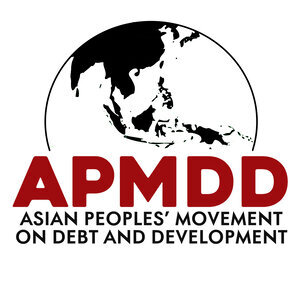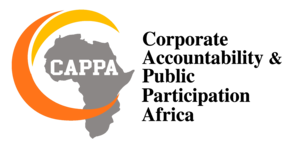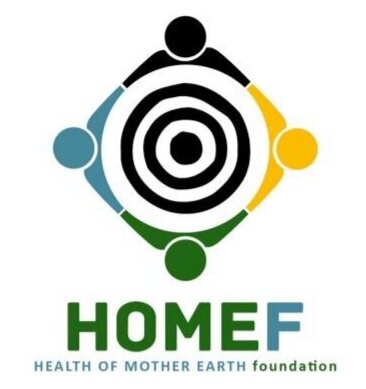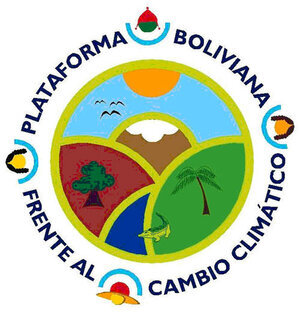Advancing liability locally to globally relies on a combination of strengthening international legal instruments and institutions that already exist, drawing from best practices and precedents, and enshrining new, bold and visionary aspiration for what is needed to transform systems and advance justice.
Why?
Polluting industries like the fossil fuel, mining, and agribusiness industries have fueled the climate crisis. They’ve reaped vast profits, all the while knowingly causing harm—burdening communities around the world with the social, environmental and economic costs of climate disaster. Holding polluting industries liable can compel polluting and destructive corporations to end their abuses as well as release urgently needed funding to address the climate emergency and climate impacts.
How?
The roadmap contains guidance for decision-makers and movements at four levels of action: local, national, international, and multi-level. Under each, you’ll find a variety of approaches that you can harness depending upon the type of leadership you hold. Explore each level above to see how you can take action to hold polluting industries liable.
What is Liability?
Liability, here, refers to using tools (legal, legislative, policy, cultural, and otherwise) to hold corporations and industries responsible for their roles in driving the climate crisis and undermining action to address it. When fully implemented in accordance with the principles laid out here, it should advance justice, address inequality, help communities on the front lines of the climate emergency access the resources they need and are owed, and deliver reparations owed to communities on the front lines of climate change.
Partners
Principles for Advancing Liability
Holding polluting industries like the fossil fuel industry liable can help deliver systemic change and end the abusive practices of polluting corporations—when done the right way. Measures to advance liability must adhere to principles of equity and fairness, at the global level. The full list of principles for implementation of liability are below:
Support communities.
Provide large-scale finance to directly support the communities on the front lines of the climate crisis: those who are leading the way in just solutions as well as unduly experiencing the greatest impacts.
Public control.
Place control of that finance in the hands of these front line communities, and under public control in general.
Indigenous/Community rights.
Protect the rights of local communities and Indigenous Peoples as protectors of nature.
Equitable access.
Ensure equitable access to technology and implementation of real, community-led solutions to adapt to and mitigate the effects of climate change.
Fund reparations.
Fund reparations toward the climate and ecological debt owed to communities most affected by the climate crisis, not shareholders or other actors such as investors.
Pollution phase-out.
Contribute to a rapid phase-out of polluting products like fossil fuels in line with what is needed to keep global temperature rise to 1.5 degrees Celsius, not become a “license to further pollute.”
Just transition.
Help fund a just transition that protects workers’ rights and livelihoods.
Independent communities.
Guarantee workers or communities are not made to become dependent on polluting industries, directly or indirectly.
End impunity.
Contribute to ending corporate impunity and other business practices that are exposing nations and communities to the threat of extinction.
Shift costs.
Shift the costs of climate change from people and communities to the entities responsible for both global greenhouse gas emissions and the intentional deceit that has inexcusably delayed climate action.
Deny immunity.
Deny transnational corporations immunity or protection from liability.
Respect nature.
Recognize and protect the rights of nature, which sustains all life on Earth, to be respected, preserved, and treated with reverence.
This list is not exhaustive but should be used to assess the strength of steps taken by decision-makers to advance the measures in this roadmap.
Case Studies
Chevron and Texaco in Ecuador
The ongoing struggle by indigenous communities of the Ecuadorian Amazon to hold Chevron accountable for decades of environmental devastation and human rights abuses provides a profoundly emblematic case highlighting the need for binding international law that prevents corporate impunity and holds polluters liable. Despite numerous legal attempts spanning decades and several international jurisdictions, Chevron continues to successfully avoid being held liable for the corporation’s irreparable harm that continues to plague the Amazon.
Big Tobacco Master Settlement Agreement
Recently, there’s been increasing attention to the parallels between the tactics—like spreading misinformation—of the tobacco industry and fossil fuel industry.12 The tobacco industry was trying to prevent public health protections, while Big Polluters are attempting to delay climate action. Now, as legal action against the fossil fuel industry gain steam, the experience of how the tobacco industry was ultimately held liable in the U.S. sheds some helpful light for those seeking to do the same with the fossil fuel industry and/or other lead climate polluting industries.
Primacy of the rights of nature
Ecuador, Bolivia, India, and New Zealand have all taken the initial step to formally recognize the rights of nature, though in different ways, and to more firmly concretize the primacy of the rights of nature and human rights above all else. Read more to see what this looks like in each country.
Contact us
This liability roadmap is meant to be a living document. We intend to update it as new opportunities, guidance, and case studies emerge.
Please reach out to info@liabilityroadmap.org if:
You would like to suggest an addition to the roadmap, such as a case study, a toolkit, or liability measure not currently reflected here.
You are a public decision-maker or social justice leader looking for support in advancing one or more of the liability measures laid out in this roadmap.
While we may not be the right people to assist with every request, we will do our best to provide additional resources and connect you to a convening organization that may be able to support you.



















